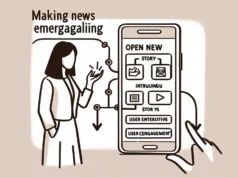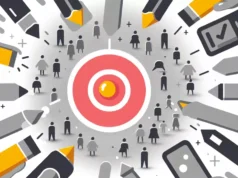The advent of the digital age has marked the inception of several innovative trends and practices in the world of journalism. Among these, crowdsourcing news coverage – the act of harnessing the collective power of the public to gather, analyze, and disseminate news – has been making significant strides. More and more, civilians, everyday citizens, are stepping onto the forefront as citizen journalists to contribute to the news narrative. By doing so, they are not only filling the gaps in traditional news coverage but also establishing a more thorough, transparent, and democratic form of information sharing.
Crowdsourced journalism is redefining the ways in which news is being made and consumed. The widespread adoption and access to smartphones coupled with the popularity of social media platforms have provided citizen journalists the tools necessary to capture, report, and share news as they encounter it. This democratization of information broadcasting is revolutionizing the journalistic landscape.
Increasingly, news stories are first reported by citizen journalists using platforms like Twitter, Facebook, YouTube, and personal blogs. The Arab Spring is a significant example of how citizen journalism played a pivotal role. Bypassing the state-controlled media, citizens took to social media outlets to report the actual on-ground conditions, forcing an international spotlight on the crisis and mobilizing global support.
However, just as with any innovation, crowdsourced journalism also has its share of challenges. Amidst concerns of fake news, and misinformation, the credibility of crowdsourced news often comes under scrutiny. Thus, it is incumbent on both consumers and platforms to cross-verify information with reliable sources. It also raises questions about the support and protection of citizen journalists who might face precarious circumstances or broader ethical implications related to privacy and consent.
Contrasting the skepticism surrounding the credibility of crowdsourced news, there are platforms like ProPublica, which utilize a blend of traditional journalism and crowdsourcing to report investigative stories. ProPublica launched its first significant crowdsourcing project in 2009, seeking reader input on nearly 500,000 newly released documents about Congressional expenditures.
Often media houses also employ crowdsourcing as a valuable tool to complement their coverage. Prominent platforms like The Guardian recently adopted a more interactive approach by involving their readers in ongoing projects. Through openings like their ‘Count The Dead’ initiative, they have successfully utilized the collective power of a ‘crowd’ to track police violence trends in the US.
As we navigate the complexities of the ever-evolving information age, the rise of crowdsourced journalism underscores a compelling shift towards a more participatory media culture. It is, thus, paving the way for a much more democratized and engaged form of news dissemination and consumption.
The role of social media platforms and tech-giants, such as Google, Facebook, and Twitter, becomes even more crucial in this context. The proliferation of crowdsourced news coverage would require these platforms to address the issues of credibility, misinformation, and the protection of citizen journalists, to enable the full potential of this transition.
Let us embrace the heft of this impact that crowdsourced journalism is creating in our media landscape. Citizen journalists, armed with the might of information and the tools of technology, truly have the power to effect meaningful change. Uniting for impact, they stand testimony to the audacious belief at the heart of journalism: That information is power, and that power belongs in the hands of the people.
Sources:
1. “The role of citizen journalism in social media & its impact on journalism”. 5th International Symposium on Digital Forensics and Security (ISDFS) 2017.
2. ProPublica.org.
3. “The hidden influence of social networks”. The Washington Post. 2017.
4. “The people formerly known as the audience”. The New York Times. 2016.
5. “Crowdsourcing The News”. Digital News Report, Reuters Institute, 2016.
6. “Media Agencies Need to ‘Unlearn’ Before Embracing New Tech”. Adweek. 2018.
7. “Crowdsourcing in the field of journalism”. BBC news. 2021.
8. “The Role of Citizen Journalism”. Source Journal of Direct Data and Knowledge Society.
9. “Counted: People killed by police in the US”. The Guardian.






